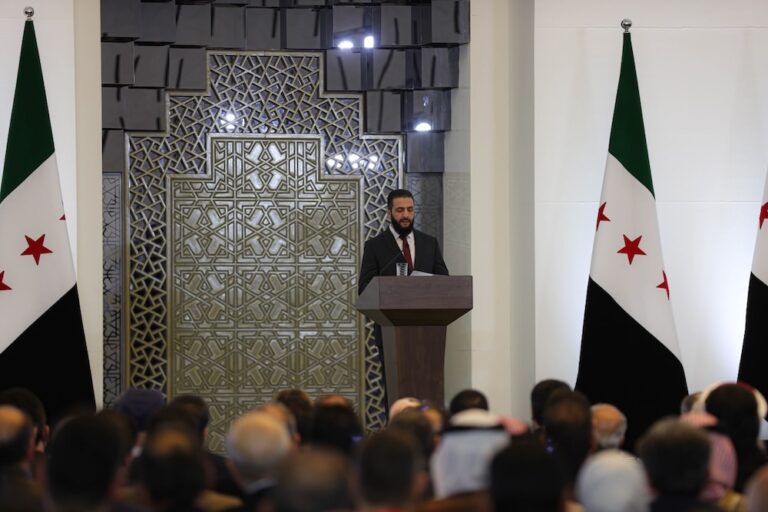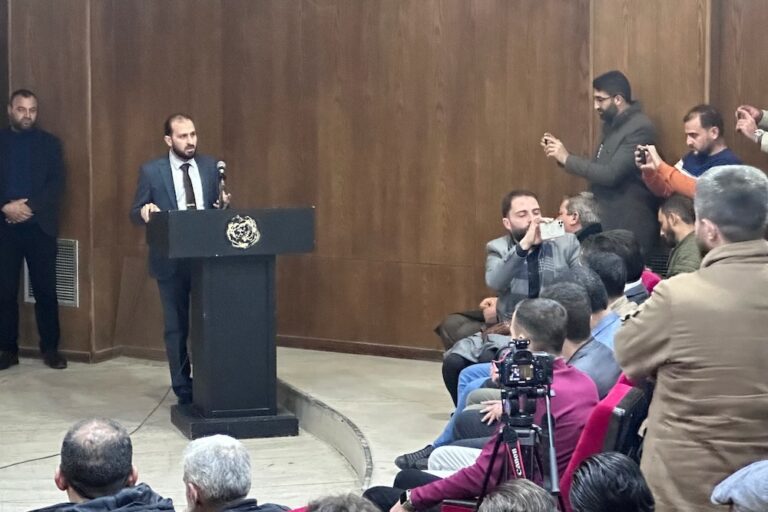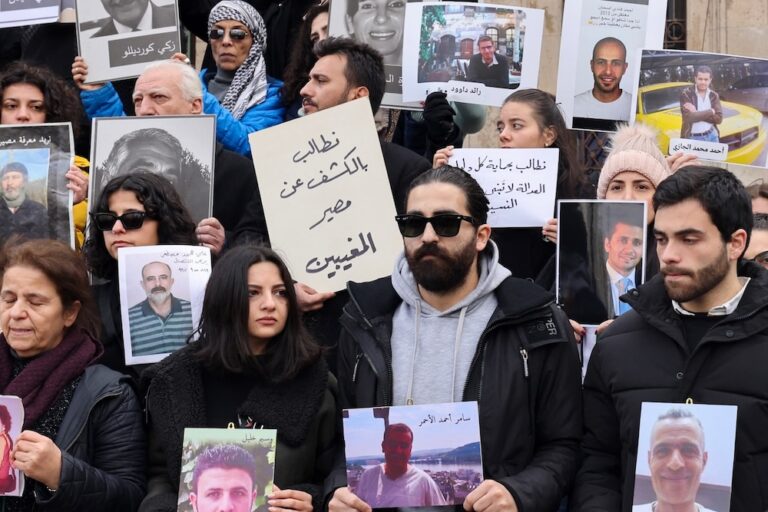"Syria's leaders talk about a war against terrorists, but what we see on the ground is a war against ordinary Syrians - lawyers, human rights activists, and university students - who are calling for democratic changes in their country," said Human Rights Watch.
(Human Rights Watch/IFEX) – New York, May 15, 2011 – Syria’s security forces continue their nationwide campaign of arbitrary arrests and intimidation against political and human rights activists, holding them incommunicado, forcing them to sign undertakings to stop protesting, and in some cases torturing them, Human Rights Watch said today.
“Syria’s leaders talk about a war against terrorists, but what we see on the ground is a war against ordinary Syrians – lawyers, human rights activists, and university students – who are calling for democratic changes in their country,” said Sarah Leah Whitson, Middle East director at Human Rights Watch. “Syria’s emergency law may have been lifted on paper, but repression is still the rule on Syria’s streets.”
Human Rights Watch urged Syria’s authorities to immediately reveal the whereabouts of the targeted activists, to ensure that no harm is done to them in detention, and to release all those held for exercising their basic rights to free expression and association.
In some cases, the security forces have resorted to detaining relatives and neighbors of the government critics, in an effort to obtain information on their whereabouts or force them to stop their activism, prompting many activists to send their families into hiding.
On May 13, security forces detained human rights lawyer Catherine al-Talli, 32, in the Damascus suburb of Berze, at around 6 p.m. She was in a shared minivan taxi when security forces stopped the vehicle, came on board and detained her, a family member told Human Rights Watch. The security services are holding her incommunicado and have not provided any information on her whereabouts.
On May 12, security forces in Homs detained Mohammad Najati Tayyara, a prominent human rights activist who frequently appeared in the media to provide information on Syria’s crackdown on protests. Security forces picked him up off the streets of Homs, a friend of Tayyara told Human Rights Watch, and have not provided any information on his whereabouts since then.
On May 11, security forces detained Wael Hamadeh, a political activist and husband of prominent rights advocate Razan Zeitouneh, from his office. The security forces had gone to the couple’s house on April 30 searching for them but detained instead Hamadeh’s younger brother Abdel Rahman, 20, when they could not find them. The couple had been staying with different friends to avoid being caught. To date, there is still no information about Abdel Rahman Hamadeh’s whereabouts.
Zeitouneh told Human Rights Watch: “I don’t know what made Wael go to work. He had stopped going lately. We don’t know which security service picked him up. We just know that they showed up at his office and took him.”
Security forces also detained nine people after a peaceful sit-in at Arnous Square, in central Damascus, on May 10, and released only two, dermatologist Dr. Mazen al-Sayyid and student Ahmad al-Qattan. Syrian authorities have sought to try Jalal Nofal, a psychologist, and Ammar Ayruka in court on charges of provoking a riot, for their role in the demonstration. According to an activist, their lawyer reported seeing signs of torture, including beatings, on their faces. The remaining five – Ammar Dayoub, Malak al-Shanawani, Mohannad Amin Hussein, Ali Omar, and Omar al-Katib – have not been heard from since their arrests.
This is the second arrest in a month for Malak al-Shanawani, a women’s rights activist, first detained at her workplace on April 10 for participating in anti-government protests.
( . . . )


